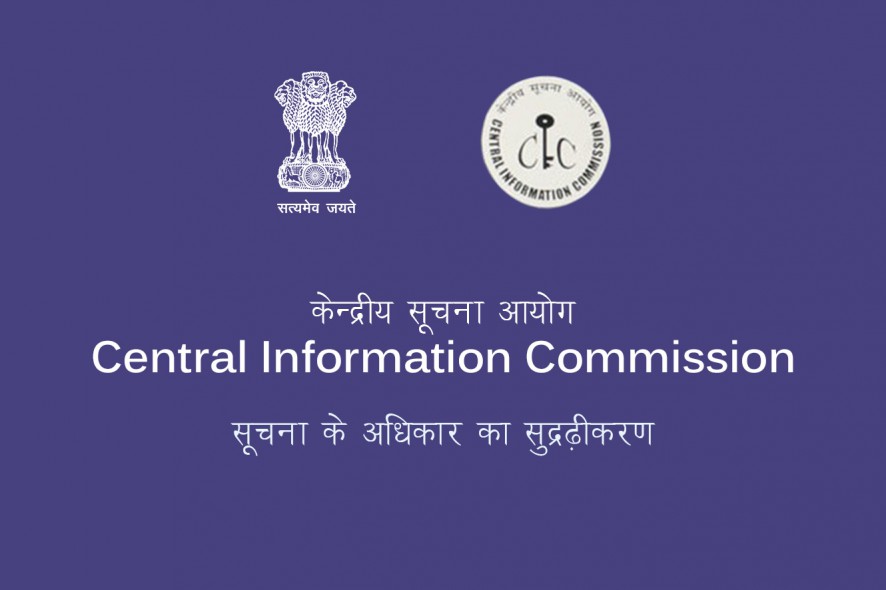Central Information Commission (CIC): In a landmark case CIC held that a candidate can seek answer sheets of other candidates and that this is not marred by Section 8(1)(e) and Section 8(1)(j) of RTI Act. However, it is subject to Sections 3 and 6.
The departmental examination which was conducted to decide the promotion on the job for the post of EO/AO comprised of four papers, out of which three were objective and one was descriptive in nature. Since the fourth paper was descriptive, no model answers were prepared. Around 3,000 candidates appeared in the exam out of which only 5 candidates were selected and this appellant was qualified but was not in the final list of four selected candidates as there were only four vacancies while the appellant stood at Number 5. Appellant wanted model answers for the Fourth Question paper also. The public authority has disclosed the questions and answers of all the candidates regarding three papers but refused to give four answer-sheets of four qualified candidates to the appellant. The appellant claimed that he wanted to check the answers given by four who topped above him and where he lacked in and if he was really ineligible to secure promotion.
The legality of demanding answer sheet in the examination is in principle upheld by the Supreme Court in CBSE v. Aditya Bandhopadhyay, (2011) 8 SCC 497 provided that the request is made during a reasonable time in which the authorities are expected to retain the answer scripts. SC held that answer book also does not fall under any of the exemption provided under (a) to (j) of sub-section 1 of Section 8 of RTI Act. So, an examining body does not hold the evaluated answer books in a fiduciary relationship under Section 8(1)(e).
In Kewal Singh Gautam v. State of Chhattisgarh, AIR 2011 Chh 143, Chhattisgarh High Court held that conduct of examination by the departmental agency for promotion in Govt. department, are not private activities, but in public domain and the checking and evaluation of answer sheet by an examiner and the marks given by him upon assessment of performance has nothing to do with the privacy of either the examiner or those who are responsible for conducting the examination so Section 8 (1)(j) is not attracted.
In Centre of Earth Science Studies v. Dr. Mrs. Anson Sebastian, 2010 SCC OnLine Ker 541, where one employee sought information pertaining to documents relating to domestic enquiry against another employee and also for getting entries in confidential report of six other employees of the appellant, repelling the claim of exemption under Section 8(1)(j) of the Act of 2005, the Division Bench of High Court of Kerala held that provision of Section 8(1)(j) are not attracted.
CIC analysed that in CBSE v. Aditya Bandopadhya, (2011) 8 SCC 497 the Supreme Court said no, but on certain practical issues. The CBSE pleaded that if it has to share certified copies of answer-sheets of other to each and every candidate seeking under RTI, it would lead to chaos and divert substantial resources. In UPSC v. Angesh Kumar, (2018) 4 SCC 530, the Court read the inherent limitation in Sections 3 and 6 as pertaining to revelation of information that is likely to conflict with other public interests including efficient operations of the Governments, optimum use of limited fiscal resources and the preservation of confidentiality of sensitive information. The Supreme Court referred to the problems in showing evaluated answer sheets in the UPSC Civil Services Examination in Prashant Ramesh Chakkarwar v. UPSC, (2013) 12 SCC 489.
CIC observed that the most important point was that the rejection in CBSE and UPSC cases was not based on any exception under Section 8(1) including (e) & (j). CIC concluded that no such difficulty exists in the present case and the appellant was entitled to get copies of answer sheet of the four candidates who topped. [Shailendra Kumar Singh v. PIO, EPFO, CIC/EPFOG/A/2018/614958, decided on 08-06-2018]







Any further developments on the issue after one year and whether Public authority has gone for a writ against such decision.